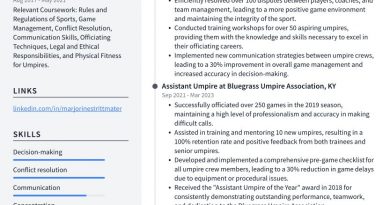Unofficial Strike Meaning Causes Examples
Unofficial Strike: Meaning, Examples
What Is an Unofficial Strike?
An unofficial strike is a work stoppage by union members that is not endorsed by the union and does not follow legal requirements. Workers engaging in unofficial strikes have little legal recourse if they are fired and do not receive strike pay. An unofficial strike is also called a wildcat strike or an unofficial industrial action.
Key Takeaways
– An unofficial strike is a strike not sanctioned by a recognized union or approved under relevant labor relations law.
– Unofficial strikes are also known as wildcat strikes.
– Unofficial strikes can be risky for both workers (without legal protections) and employers (increased disruption to business).
– Throughout history, unofficial strikes have devolved from or evolved into official strikes, with many meeting success.
Understanding an Unofficial Strike
In the United States, an unofficial strike is illegal under the 1935 National Labor Relations Act (NLRA), and courts have held that employers can fire employees who engage in them.
However, U.S. workers can request that the National Labor Relations Board (NLRB) terminate their relationship with their labor union if they feel the union does not represent their interests. After this termination, any strike action they may undertake is technically unofficial but not illegal as it removes the conflict between sections 7 and 9(a) of the NLRA.
Causes of an Unofficial Strike
Unofficial strikes occur when workers circumvent their own union and take action on their own initiative. This might occur due to incidents or conditions that immediately anger workers before union action can commence.
Alternatively, workers may strike in opposition to union leadership if they believe the union fails to represent their interests or has been co-opted by management or outside elements. Strikes may also happen if the union disagrees with employee demands and refuses to support them in remedying unjust wages or practices.
For businesses, unofficial strikes can be disruptive because they often occur without warning. An unannounced strike can have immediate consequences for the target business, related businesses, and customers, especially in the modern age of just-in-time (JIT) supply chains.
Due to their extralegal nature and emotional factors involved, unofficial strikes may also increase the risk of violence and property destruction directed towards the business, managers, and non-striking workers.
Real-World Examples of Unofficial Strikes
A notable unofficial strike was that of West Virginia teachers in 2018. They refused to return to classrooms until their demands for higher wages and more generous healthcare benefits were met. This strike started as an official strike but later became unofficial after losing union support. Despite being unofficial, the strike was successful and inspired similar unofficial strikes in Kentucky, Oklahoma, and Arizona.
Some other wildcat strikes started off as unofficial but later gained union support and became official. Examples include the Baltimore municipal strike of 1974, where municipal workers initiated a strike for better working conditions and higher wages, and the Memphis sanitation strike of 1968, where black sanitation workers fought for better pay and safer conditions. The Memphis strike became part of the Civil Rights movement and drew the attention of black community leaders like Martin Luther King, Jr.
On an international level, one of the most famous unofficial strikes occurred in France in May 1968. Strike actions spread across the entire nation, causing French president Charles de Gaulle to briefly flee the country and bringing the economy and government to a halt. This was the first unofficial strike to affect an entire nation.



